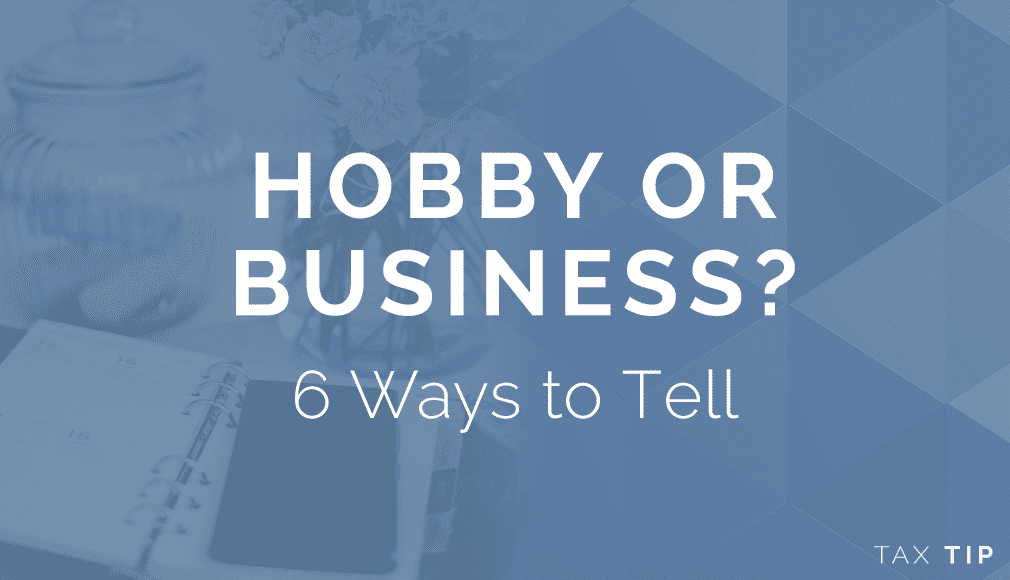
The proper tax treatment for an activity varies depending upon whether it is a hobby or a business. Millions of people enjoy hobbies that are also a source of income. Think of baking cupcakes, making homemade jewelry, or woodcarving.
If the activity is a hobby, you must report the income earned on your tax return and you can only deduct expenses up to the amount of the income. These are deducted as miscellaneous itemized deductions and don’t count against taxable income until they (and other miscellaneous expenses) surpass two percent of your adjusted gross income.
If the activity is a business, you can use all the ordinary and necessary expenses to offset the income, even if it results in a loss.
Here are some tips to determine whether you can define your activity as a business.
Business: You have a reasonable expectation of making a profit.
Hobby: You may sell occasionally, but making money is not your main goal.
“If your legitimate business shows losses for more than three out of five years, it can become more difficult to prove to the IRS that you have a profit motive.” adds Manager Julie Strohlein, CPA.
Business: You invest significant personal time and effort. You depend on the resulting income of the activity.
Hobby: It’s something you do in your free time; you earn the bulk of your money elsewhere.
Business: Your expenses are ordinary and necessary to run your business.
Hobby: Your expenses are driven by your personal preferences and not strictly necessary.
Business: You have a track record or reputation in this industry, and/or a history of making profits.
Hobby: You don’t have professional training in the field and have rarely or never turned a profit.
Business: You have multiple customers or professional clients.
Hobby: You have a few customers, mainly relatives and friends.
Business: You maintain professional records, including a separate checkbook and balance sheet; you have business cards, stationery, and your own branded business website.
Hobby: You do not keep strict professional records of your activities; you also do not have a formal business website or business cards.
“The IRS considers an activity presumed for profit if it makes a profit in three of the last five years, including the current year,” says Associate Partner Michael Engleman, CPA. “However, there is a special rule for activities that consist of breeding, showing, training, or racing horses. A profit needs to be made in two of the last seven years to be presumed the activity is for profit.”
The IRS tries to lay out clear guidelines to help taxpayers know whether to define their activity as a hobby or business for tax purposes, but the situation may not always be so clear. If you don’t feel confident, contact one of Alloy Silverstein’s tax experts for advice.
Contact Us
The information contained in this newsletter is of a general nature and should not be acted upon in your specific situation without further details and/or professional assistance. For more information or for assistance with any of your tax or business concerns, contact our office at 856.667.4100.
Empowering business owners and individuals in South Jersey and Philadelphia to feel confident through proactive accounting and advisory solutions.